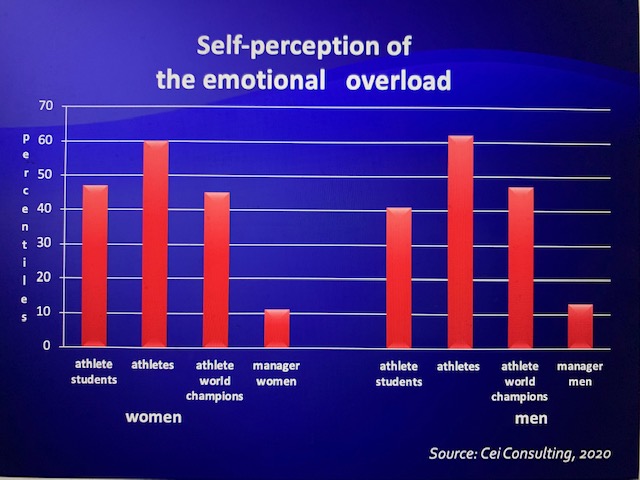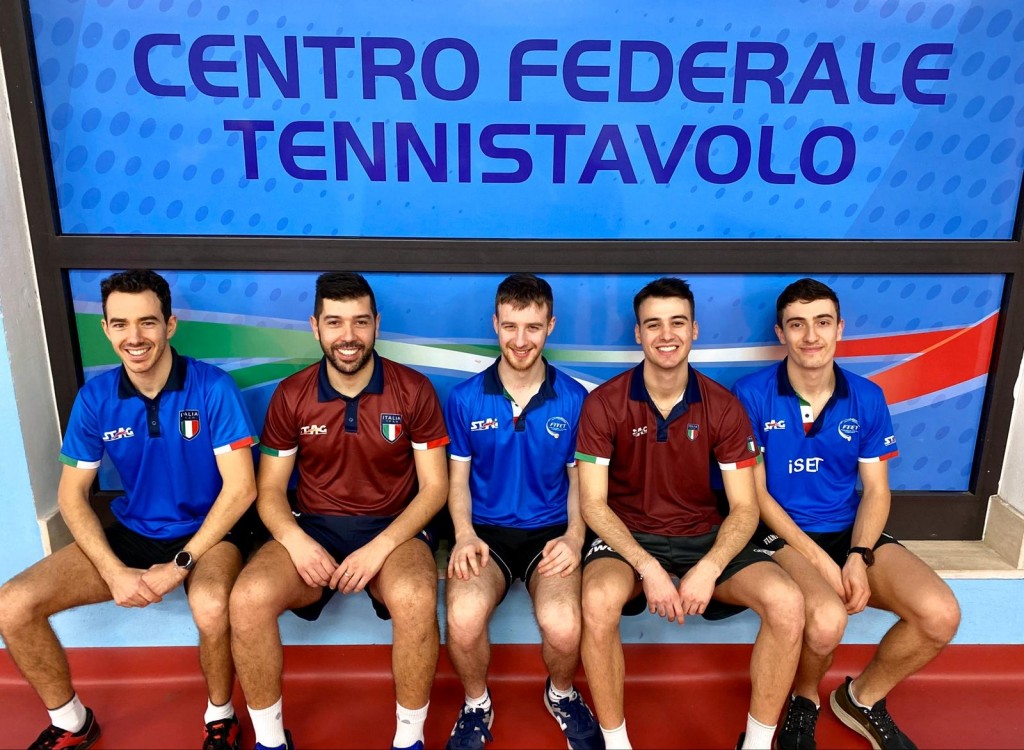Research data emerging from TAIS Performance Systems and elaborated by me show that the management of emotions is a decisive aspect for all athletes, be they College level, international level or world champions. In fact, the results below show that even world championship winners believe that emotions can be a significant disruptive factor to manage effectively.
They consider themselves to be better than the group called athletes, which includes athletes of international level in their sport. On the contrary, it emerges that in the business world, the men and women managers, perceive themselves to be much less emotionally influential than world champions. Probably on this difference in perception weighs the difference in age also very significant and the characteristics of performance, which in sport are typically individual and occur in a short time, quite frequent, predetermined and without possibility of postponement. To compete every week as in team sports, tennis, skiing and many others determines a continuous up and down of one’s emotional condition, requiring a constant and frequent control of one’s moods. This explains why the world’s top athletes follow psychological preparation programs in order to use at the best their sport and competitive skills, while maintaining a high level of self-control.






